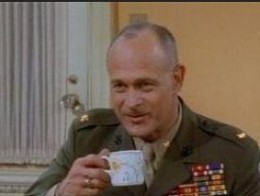When Pop Culture Was Obsessed With Dads

In the nineties, Dad was sometimes the coolest guy in the room. He was sometimes the butt of the joke. He was sometimes the absence that made all the difference. But he was always, insistently, at the center of the story.
For the Paris Review Daily, Willie Osterweil writes about the nineties, a time of paternalistic foreign and economic policy, a time of newly grown-up baby boomers, and a time of SO MANY DAD SHOWS:
By 1990, even the youngest baby boomer was twenty-six, and most of them were solidly in their thirties and forties. They were losing their grip on cool. And they were having kids. It was only natural that they’d want to dramatize the experience. Granted, Bill Cosby, arguably the most quintessential dad in TV history, reached his peak popularity in the mideighties — but the early nineties saw an explosion of hit dad-based sitcoms: Coach, Married … with Children, The Simpsons, Home Improvement, Major Dad. These continued to proliferate throughout the decade; witness Full House and Everybody Loves Raymond, among many others. Many of these were just trying to get a piece of the megasuccess of The Cosby Show and Roseanne. But when those sitcoms are discussed, they’re often applauded for their working-class heroes, while the recentering of dad is less often highlighted. (This is exactly how Reaganite politics worked, too: use lip service to the working class to retrench economic power.)
And that’s not even getting into all the dad movies, or as Osterweil calls them, “dadventures” (nooooooo), including the most dad movie agit-prop (dadgit-prop?) ever, Steven Spielberg’s Hook.
Support The Billfold
The Billfold continues to exist thanks to support from our readers. Help us continue to do our work by making a monthly pledge on Patreon or a one-time-only contribution through PayPal.
Comments